SUMMARY
This is AI generated summarization, which may have errors. For context, always refer to the full article.
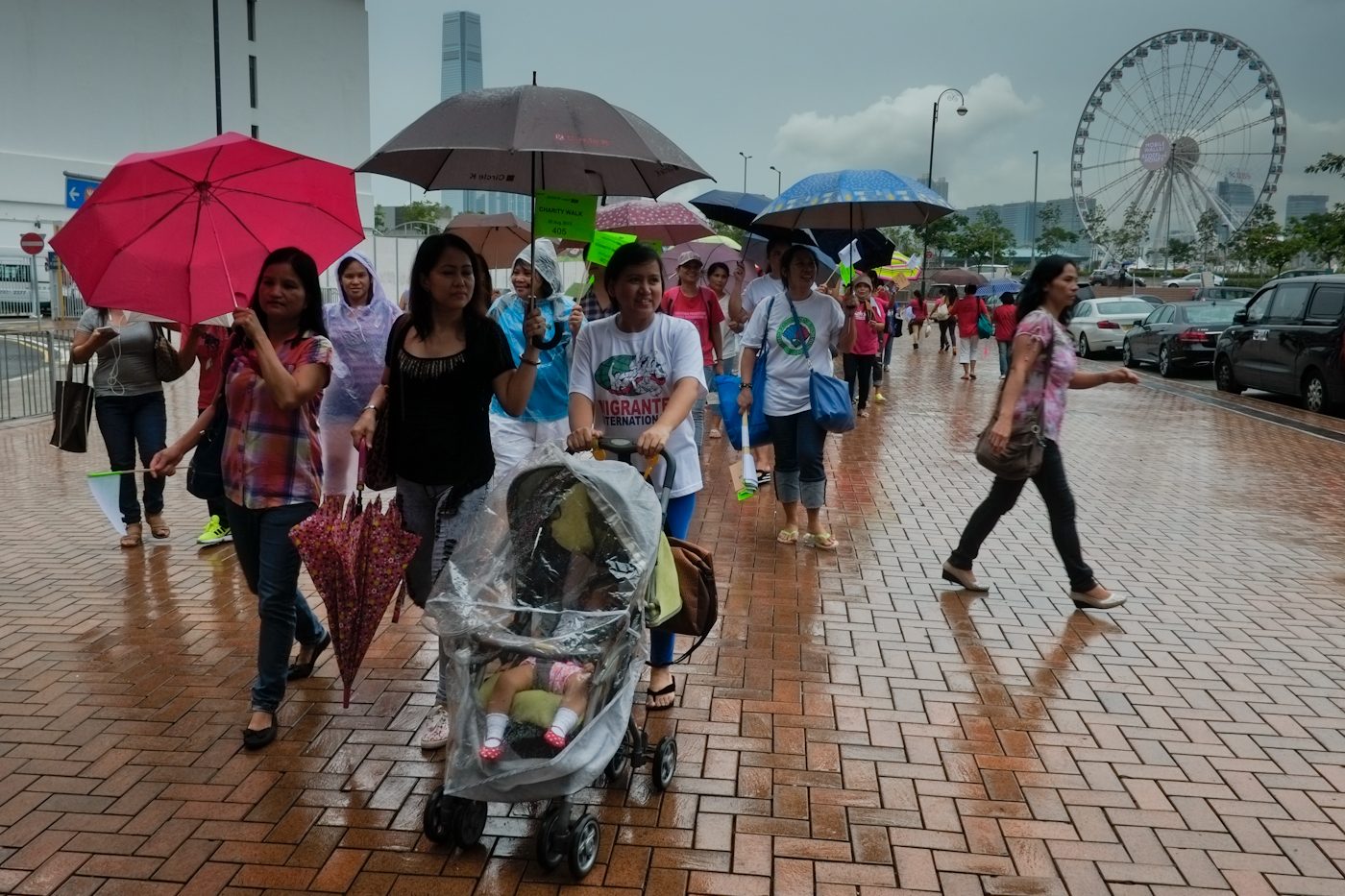
HONG KONG — It may be said that overseas Filipino workers (OFWs) forever transformed the city’s Central district— the area dominated by prime real estate, office towers, and bank buildings, the enclave of the corporate class during weekdays — into a domestic space every Sunday.
Since the first 1,000 Filipinos came to Hong Kong in 1975, they seem to have been drawn to this side of Hong Kong Central.
They gather by the thousands, appropriating streets and sidewalks, flyovers and footbridges, parks and pedestrian overpasses and underpasses, into a space of their own. It’s a sort of spatial network that forms a pop-up little Philippines in the heart of Hong Kong, a Filipino community that exists only on Sundays.
The space OFWs occupy is further partitioned into “apartments”, usually demarcated by cartons or umbrellas, sometimes boarded up with cardboard boxes, particularly during winter. This is perhaps the most symbolic way on how Filipinos, mostly female domestic helpers (DH), have transformed Hong Kong Central’s public space into a private one.
Ironically, these boarded spaces on Central’s grounds echo the minimal privacy and cramped conditions of their living quarters in their work places — the homes of their Hong Kong employers, whose average apartment size is usually between 400 to 700 square feet only.
Filipinos have turned these weekly Sunday gatherings into opportunities for cultural connection, social support, and political performance.
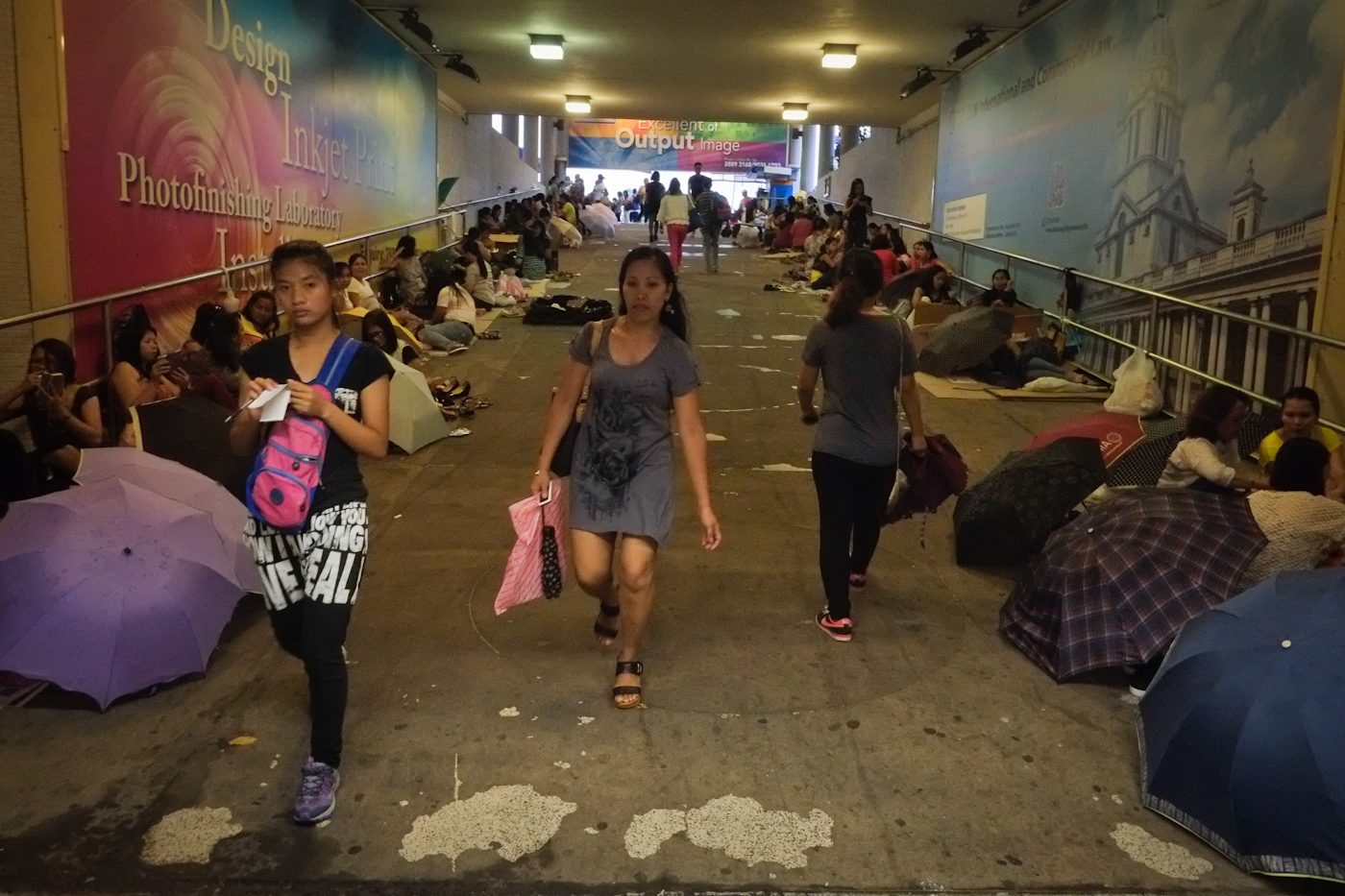
The transformed public space also becomes a gathering place for Filipino migrant workers, where they can speak Filipino, eat Filipino food, talk about Philippine politics, or catch up on the latest national news.
This gathering of a migrant population on its day-off may be considered a social spectacle. It has, in fact, become a tourist attraction of sorts, or to some, tourist-deterrent.
“What an eyesore!”
These words were used to describe the thousands of Filipinos at Hong Kong Central during Sundays. Ironically, these are words from a fellow Filipino.
“Ang sakit ng aking loob,” said 62-year-old Cynthia Tellez, a Filipino church worker in Hong Kong, who runs the Mission for Migrant Workers. “Ang nagsabi sa akin, ‘alta’.”
(It hurts me. It was said to me by someone from high society.)
The first generation labor exports
“Noon, maraming Filipina diyan sa may Star Ferry. Hanggang ngayon, dito sa park na ito, maraming Filipino. Kilalang-kilala ka ‘pag Filipino ka dahil ibang-iba ka sa mga tao rito,” Cynthia claimed.
(In the past, there were many Filipinas near the Star Ferry. Up to now, here in the park, there are lots of Filipinos. You’re easily identified as a Filipino because you are very different from the locals.)
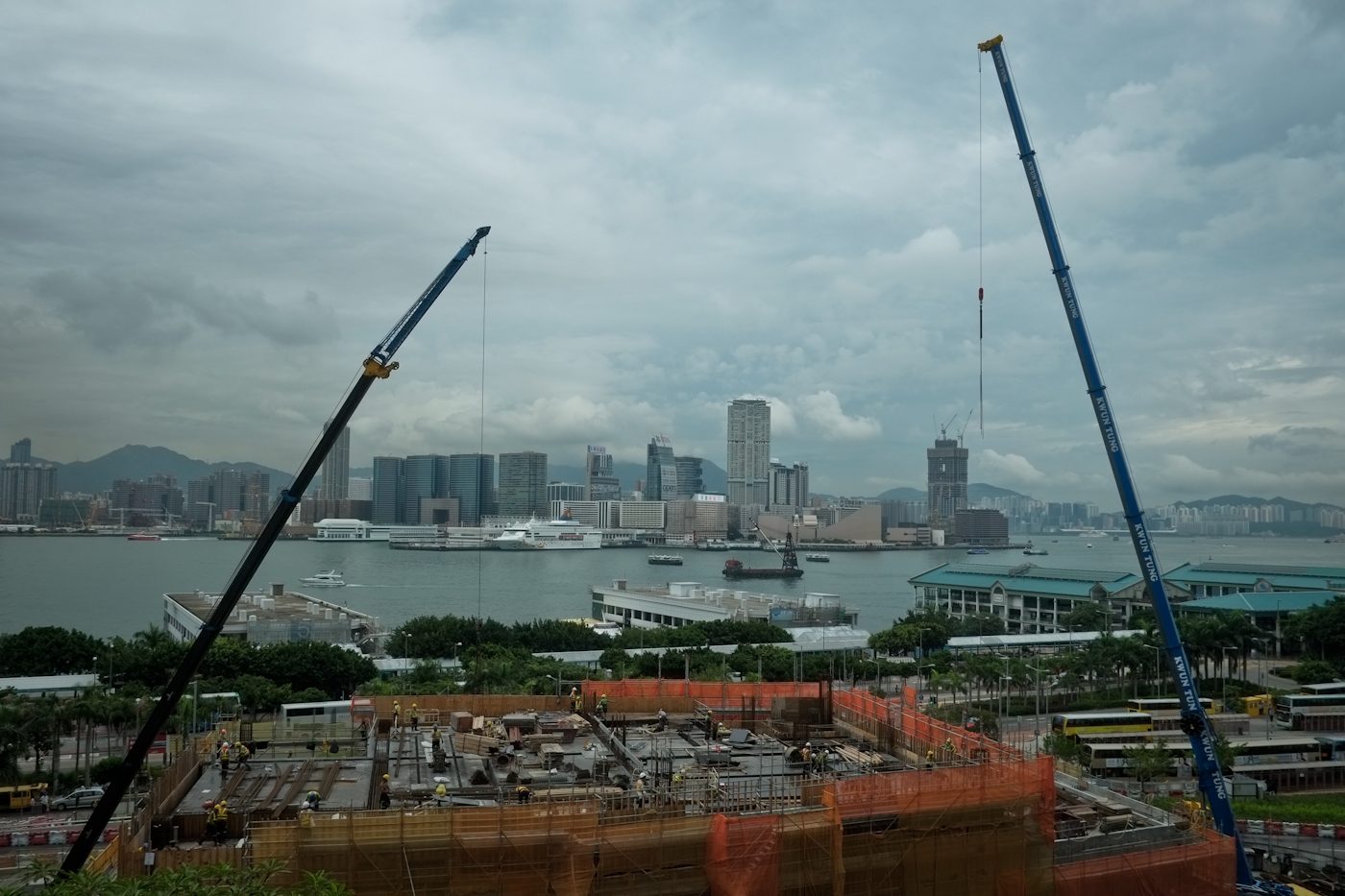
She first came to Hong Kong for a church mission in 1980.
“Noong panahon na ‘yon, ‘yun ang influx ng mga kababaihang Filipina dito sa Hong Kong. Pinapunta ako rito ng Anglican Church para makita lang, in 3 months time, kung ano ba talaga ang problema at ano ba talaga ang kailangang gawin,” she recounted.
(That was the time of the influx of Filipina women in Hong Kong. I was asked to go here by the Anglican Church to see, in 3 months time, what really are the problems, and what really needs to be done.)
But after 3 months, Cynthia left Hong Kong, only because she missed her children.
“Hindi na ako babalik ng Hong Kong!” (I’ll never go back to Hong Kong!)
But she knew she had to come back. In 1982, Cynthia returned to Hong Kong, her home for the last 33 years now. She even recalls a time when she met a Filipina, who was alone by the bay. She said the DH told her, “Para akong hinihigop ng dagat.”
(I feel the ocean sucking me in.)
Perhaps, there is no metaphor more fitting than this. There is an entire ocean that separates DHs from their homeland. And the vastness of that ocean grows ever larger every day, an ocean of longing for their loved ones. Then, there is the ocean of days between Sundays, the only day when OFWs can reconnect with their fellow Filipinos.
The hundreds of thousands of OFWs in Hong Kong, continue to battle homesickness, including 42-year-old Eman Villanueva, who has lived in Hong Kong for more than half his life.
“Imagine, 24 years na ako rito, parang sasabihin mo ba hindi ako naho-homesick? Hindi totoo yon!” he confessed.
(Imagine, I’ve been here for 24 years. Will you say I don’t get home sick? That’s not true!)
2nd generation OFW, among 1st male DH in HK
“Dumating ako rito ng 1991. That time, parang wala pang 1,000 ang mga kalalakihan dito. Pero ngayon marami na rin. Ngayon nasa, more or less, 5,000 na ang mga male domestic workers dito,” said Eman.
(I came here in 1991. That time, there was less than 1,000 male [domestic workers] here. But now, there are about 5,000 male domestic workers.)
“Noong time na yon, ibang lebel. Kaya inaabangan ko ang Sundays,” he said.
(It was a difficult time then. So I really looked forward to Sundays.)
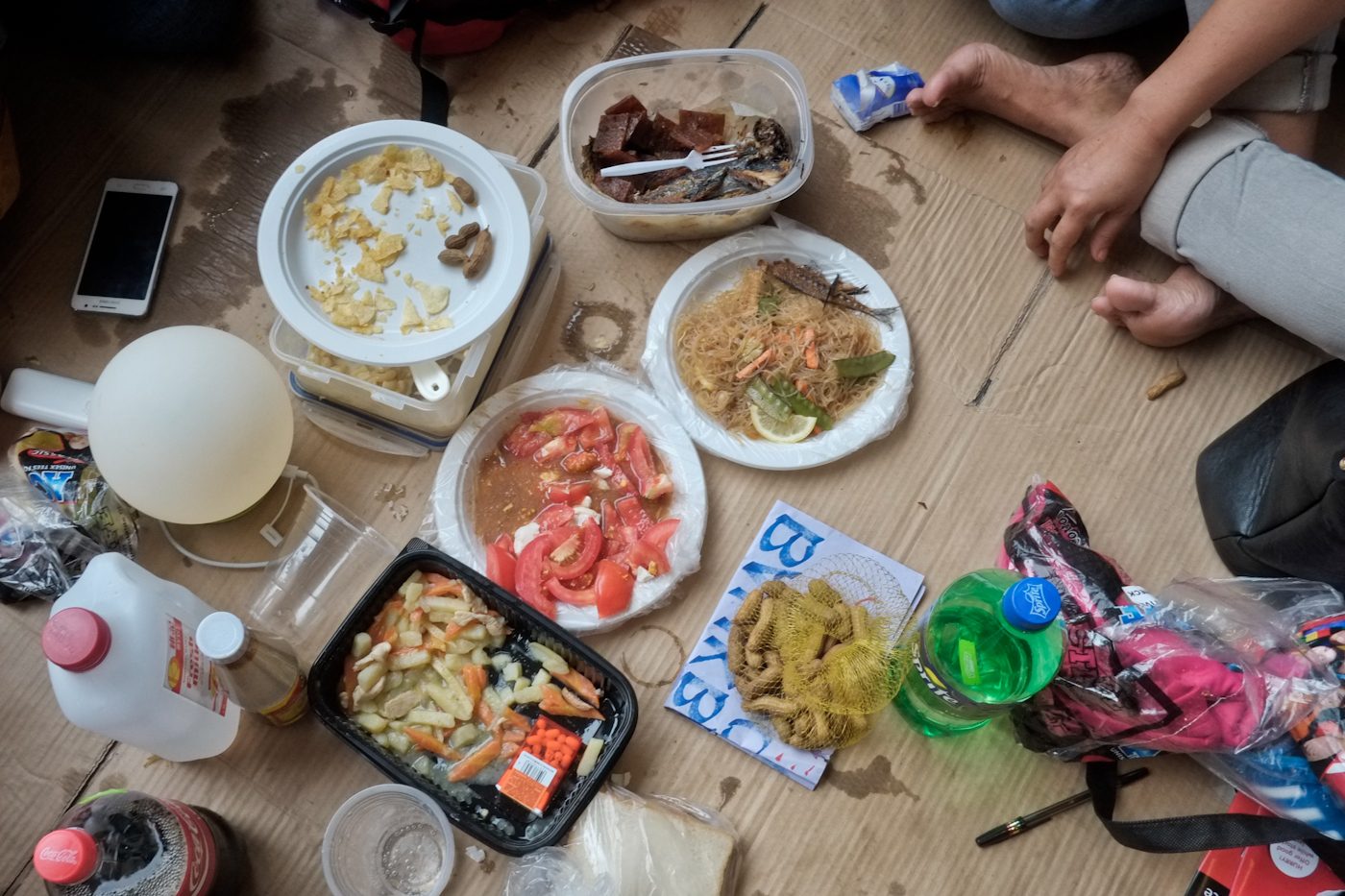
It was only during Sundays when Eman could be with fellow Filipinos. Between Sundays, Eman had to contend with his radio to reconnect with his Filipino identity. He says there was only one Filipino station then. Like clockwork, he would tune in every day, at 9 pm, just before he sleeps.
“‘Pag nakarinig ka naman ng mga Filipino music, ‘pag pumalao na ang mga love song, lalo na yung related sa OFW, patay na! Bigla mong maiisip family. Lalo kang naho-home sick.”
(But when you hear Filipino music, when they play love songs, especially those related to OFWs, dead on! I immediately think of my family. I then get more homesick.)
According to Eman, he went to Hong Kong to work as a domestic helper after his mother, also a domestic worker in Saudi Arabia, was forced to come home because of the Iraq-Kuwait war.
“The whole time na high school ako wala siya sa Pilipinas. Ayoko na rin siyang pabalikin kasi 55 years old na siya that time. Tapos may giyera pa,” he explained.
(The whole time I was in high school, she wasn’t in the Philippines. I didn’t want her to return [to work in Saudi Arabia] because she was already 55 years old that time. Then, there was the war.)
Incidentally, Eman got a telegram from his aunt in Hong Kong. There was a job opportunity waiting for the fresh high school graduate.
The first few weeks he was in Hong Kong, the then 18-year-old had no friends other than his aunt. Until he got involved with what he often refers to as “the organization.” By that, he means the umbrella groups in Hong Kong, whose Philippine-counterparts are red-tagged, or labeled as left-leaning, if not downright insurgents.
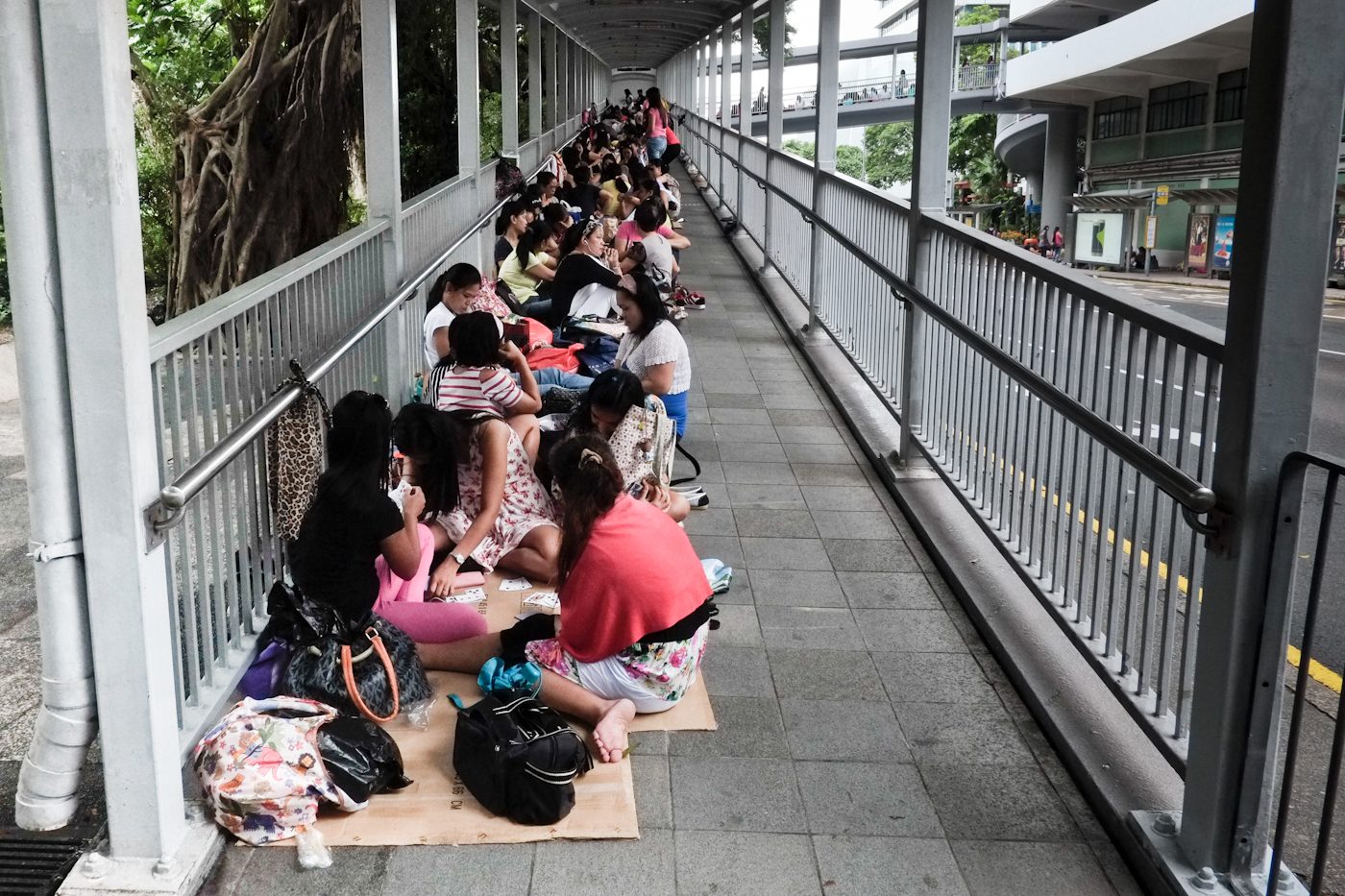
Eman is now the Chairperson for Bayan Hong Kong-Macau. He also served as the Secretary General of Migrante Hong Kong.
He says there are about 200 Filipino organizations in Hong Kong, including rights groups, dance troupes, athletic associations, indigenous peoples, religious, cultural, and lesbian organizations.
“Sa totoo lang, ang daming community events na nagaganap dito, gaya ng livelihood training, training para sa enhancement ng mga kaalaman, know-your-rights training. Ang dami ring aktibidad, mula sports, hanggang community meetings, hanggang sa mga kilos-protesta,” said Eman.
(In truth, there are a lot of community events happening here, such as livelihood training, skills enhancement training, and know-your-rights training. There are also many activities, from sports, to community meetings, to protests.)
They are a community only on Sundays. But after Sunday, they live separate lives. But Eman says there is a recent development—social media. In-between Sundays, the Filipino community becomes a virtual one.
The new generation of OFWs
“Ang laki ng binukas niya for the community. It’s a good thing na mayroong online community na nadevelop kasi yung in between Sundays, tapos sa kagaya namin na stay-in, sa bahay ng employer, ang laking bagay noon,” he said.
(That opened up a lot of space for the community. It’s a good thing there is an online community that was developed in between Sundays. For those like us who stay in the houses of our employers, that’s a great deal.)
He added: “Ofcourse may downside din yan. Ngayon ang mga tao, ‘di na masyadong nag-uusap. Nagme-messaging na lang. Although ang kagandahan ng community natin dito, nag-uumpuk-umpok. May mga hawak na cellphone, pero physically, nandiyan sila, nag-uusap sila.”
(Of course, that has a downside. There are people who do not talk anymore. They just send messages. Although the beauty of the community is we are tight-knit. We hold cellphones, but physically, we are there and we talk.)
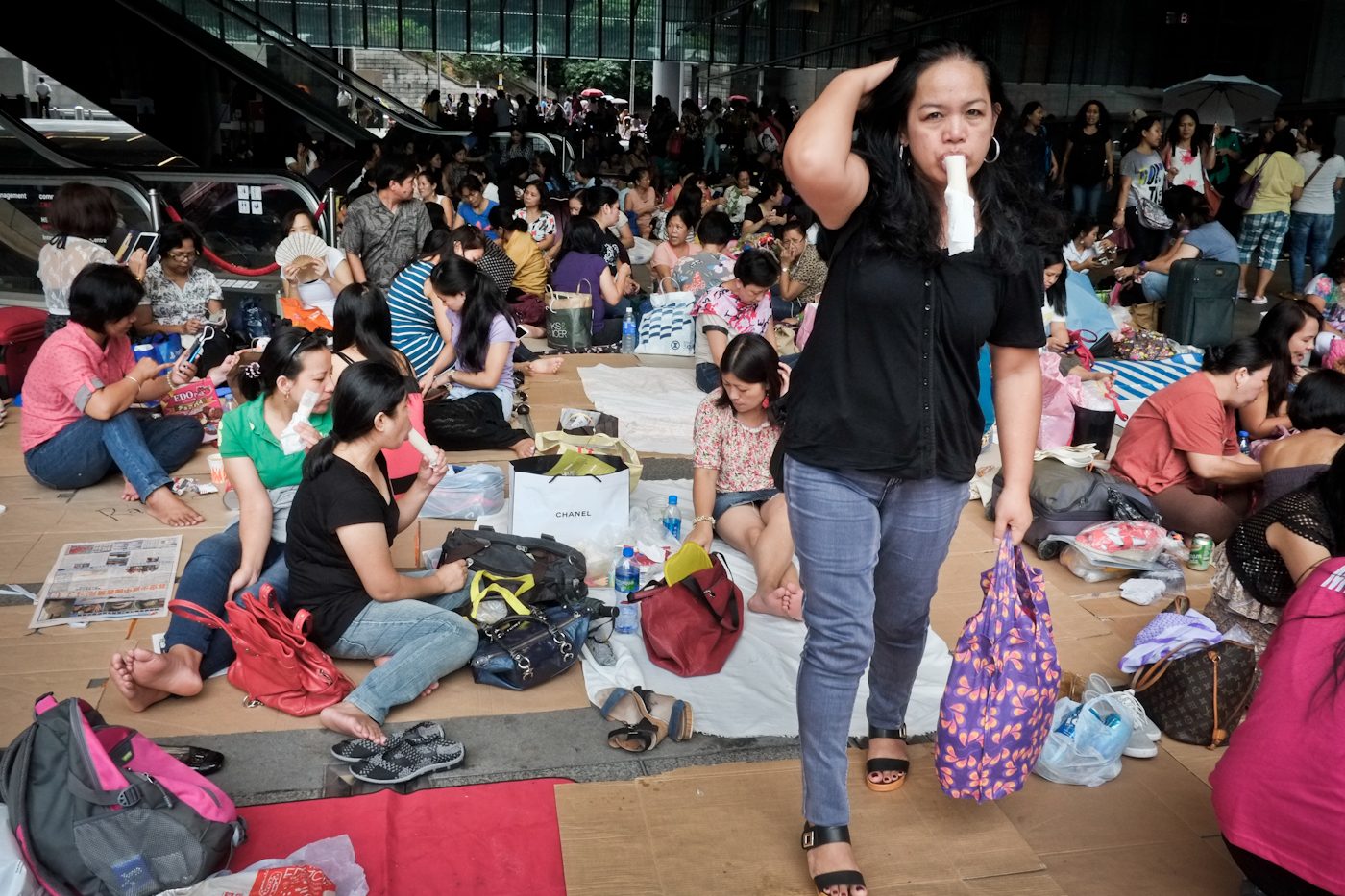
Marivel Zarco is among the new generation of Filipino migrant workers in Hong Kong. The 28-year-old from Leyte, who has been working here only for 4 years, is among the DHs gathered at the HSBC Headquarters.
She is distributing fliers to fellow Filipinos, encouraging them to join the annual Charity Walk of Cynthia’s Mission for Migrant Workers, which provides a safe shelter and legal assistance to abused migrant workers, whether they’re Filipinos or other nationalities.
Like Eman, Marivel was not an activist back home. It was only in Hong Kong where she became part of “the organization.” She is now among 50 active members of Gabriela’s Hong Kong chapter. It is here where she felt a sense of community, It is here where she found her purpose.
Marivel came to Hong Kong in the hopes of earning good money to send her ailing father to the hospital and afford the medicine he desperately needs. Unfortunately, her father died while she was on her fifth month in Hong Kong. She was also to send her sister to school. But her sister got pregnant and stopped schooling.
She decided to stay and continue to work in Hong Kong because she said there are not that many job opportunities in the Philippines, especially for undergraduates like herself.
Her sentiments perhaps reflect those of many other OFWs in Hong Kong. While there are many DHs here who finished secondary school, there are also many others who are college graduates. There are even those with a post-graduate degree. Then, there are those who were professionals but left their lower paying jobs back home.
They now all gather here, in Hong Kong Central, on any given Sunday.
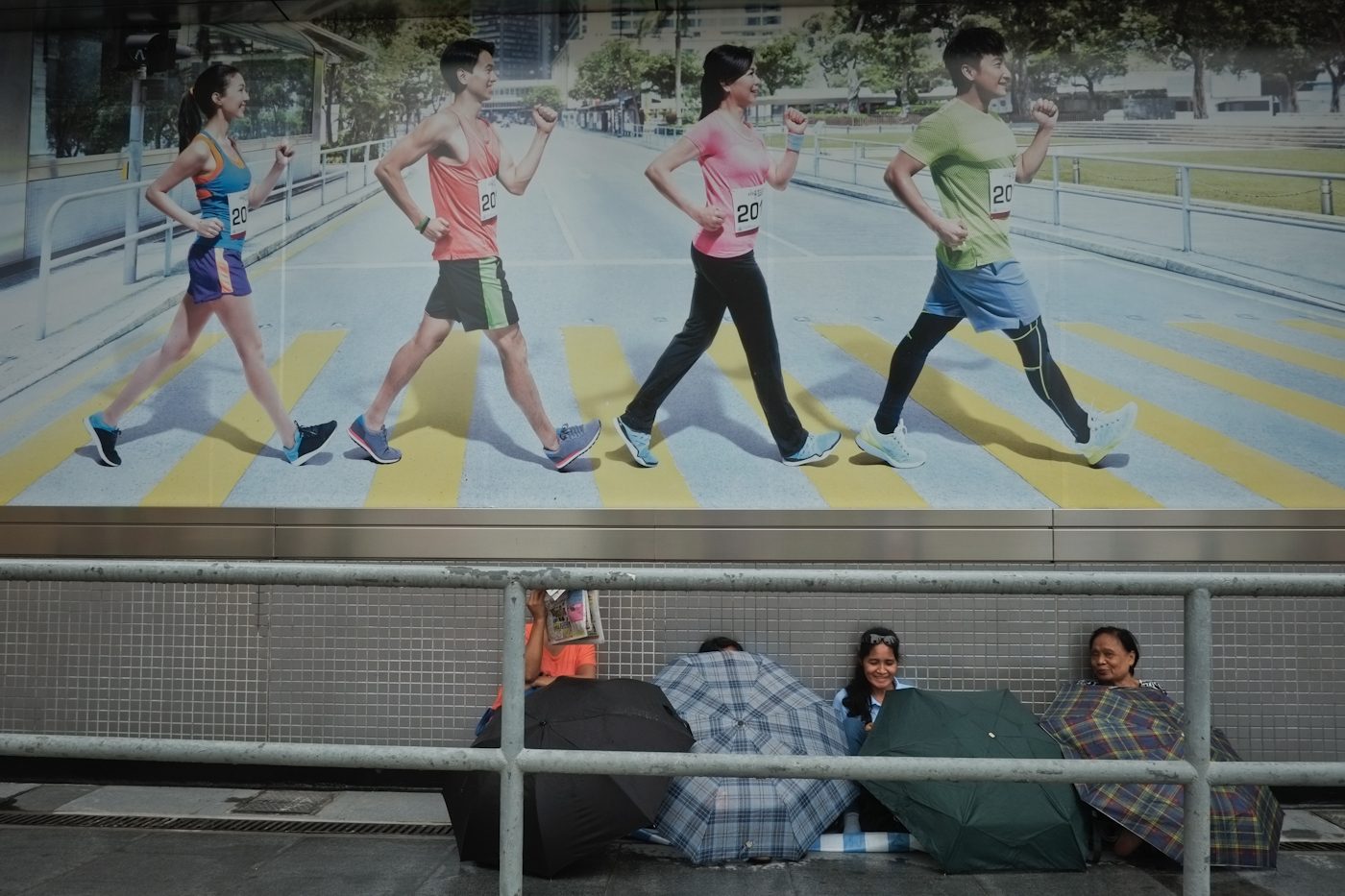
– Rappler.com
Add a comment
How does this make you feel?
There are no comments yet. Add your comment to start the conversation.